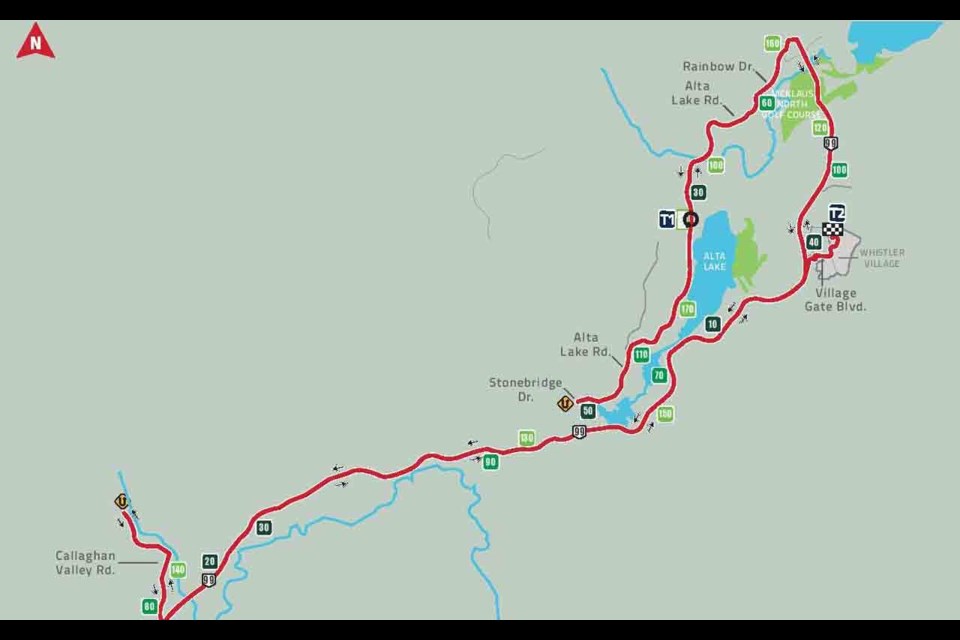Pemberton is no longer part of the Subaru Ironman Canada course.
Race organizers revealed on Thursday a brand-new bike course that minimizes the footprint of both the full-distance (226.3-km) and half-distance (70.3-mile or 113.1-km) events.
The full-distance race will have riders start from the transition point at Rainbow Park, head north on Alta Lake Road through Alpine, and then take Highway 99 down to Callaghan Valley Road, where they will go partway up before turning around and returning to Rainbow Park. After the third lap, riders will head south on Highway 99 before taking a left turn onto Whistler Way and progressing to the normal run transition in Day Lot 4.
The 70.3 course will send riders to the end of Callaghan Road, back up to Rainbow Park, and then through Whistler Village.
Race director Christine Cogger said since athletes would get additional opportunities to ride by friends and family, a lot of the early feedback has been encouraging.
"So far, it seems like it's all positive. It's not an easy course by any stretch, so I think that appeals to a lot of people. I think we did a good job of listening to our stakeholders and working with what we have," she said.
Dylan Gleeson, the age-group champion in 2017, is of mixed emotions regarding the change. He said he's not a fan of the new course overall, but acknowledged there were few options if Pemberton was to be left unaffected.
"I was hoping they were going to change it to a two-loop course, and looking at it now, I see that it cuts out a huge portion of the Callaghan climb, which was one of my favourite parts of the course," said Gleeson, who regularly trains in Whistler and will race the 70.3 here this July. "With the three-loop course, we get so much more congestion. One of the nice things about a one-loop course is all the fast people are going to make their way to the front and all the slower people are going to be at the back."
Even though features like the Suicide Hill climb between Whistler and Pemberton will no longer be part of the course, Gleeson expects the course to be more difficult this year.
"It's a bit deceiving, but the section between Whistler Village and the bottom of the Callaghan, coming back is a pretty difficult part of the course. There are a lot of rolling hills in there, so riding that three times and also doing all the climbs on Alta Lake Road, that's going to take it out of people's legs," he said.
Having the athletes riding on the south portion of Highway 99 later into the day could affect traffic if the reopening plan is implemented similarly to previous years. But Cogger said organizers are looking at how to hasten the reopening in a manner that's safe for athletes and motorists.
"We know that having the highway used for this race has a huge impact on everybody in the corridor, so we are looking with our traffic management company and the ministry to minimize the impact on residents. We don't have the final plan yet, but we are looking at options of single-lane alternating to the village, which will allow access to the village proper and then also to flip the lanes southbound to Vancouver, allowing for access sooner," she said.
For more, pick up next Thursday's edition of Pique.




